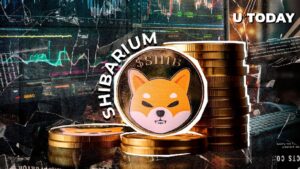A DeFi aggregator brings together trades across various DeFi platforms into one place.
What Is a DeFi Aggregator?
A DeFi aggregator brings together trades across various decentralized finance platforms (DeFi) into one location, saving users time and increasing efficiency for cryptocurrency trades. As the name suggests, DeFi is spread out across different blockchains such as Ethereum and Binance Smart Chain. Within each blockchain is an ecosystem of isolated financial protocols.
Not only do aggregators pull the best prices, but some DeFi aggregators even offer a unique, user-friendly way to analyze and combine other users’ trading strategies via a convenient drag and drop mechanism. This way, users can create an entirely new strategy of their own using the inspiration of other successful traders. The drag and drop mechanism also helps users visualize complex DeFi protocols via blocks that can be built on top of one another.
Aggregators put UX/UI at the forefront, offering a far superior experience to the traditional way of manually interacting with liquidity layers. As a result, this helps users who are not as crypto-savvy as trading experts navigate the world of DeFi with ease.
The potential downside of using a DeFi aggregator is the gas fees. As Ethereum continues to reach new all-time highs and volume increases across the network, gas fees tend to follow this upward trend. Usually, gas fees are higher on aggregators compared to using the individual protocol. However, some aggregators found a solution to this problem via gas tokens or gas cubes developed into the platforms that let users save money on gas fees. It’s also important to note that while gas fees may be higher on an aggregator, they act as a sort of “convenience fee” since the optimization and efficiency that comes with an aggregator can outweigh the gas fee.
In a decentralized economy such as this, it’s still important to centralize some aspects of DeFi for the sake of efficiency. DeFi aggregators bring together the best of both worlds of centralized organization strategies and decentralized finance protocols to create an important tool in this new, exciting industry.
Author:




